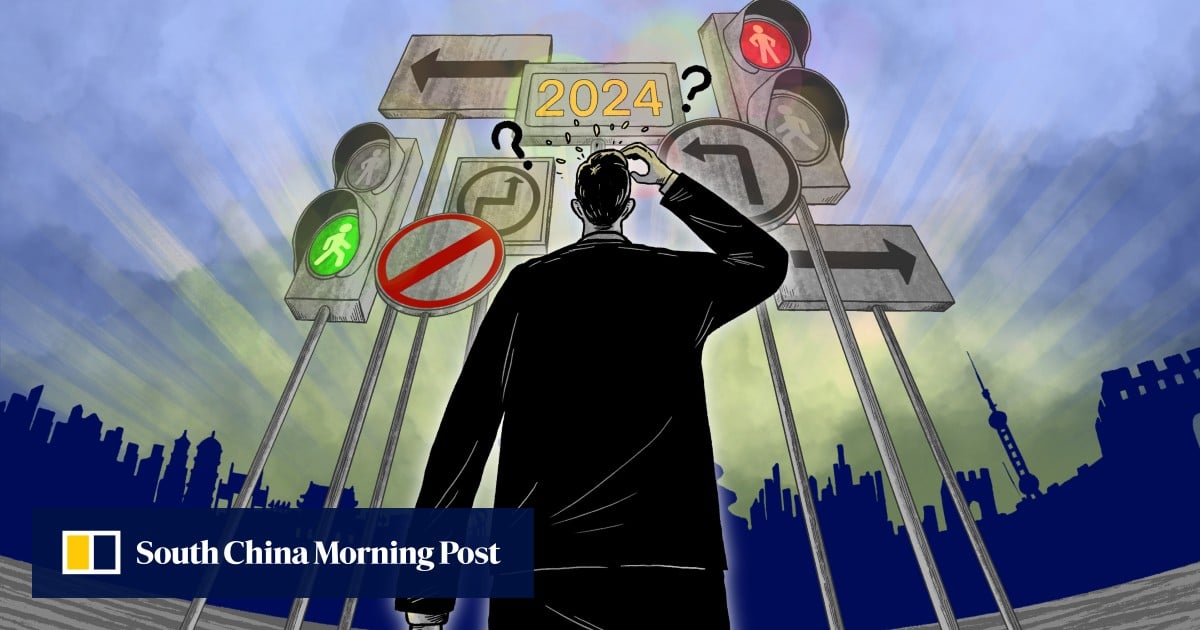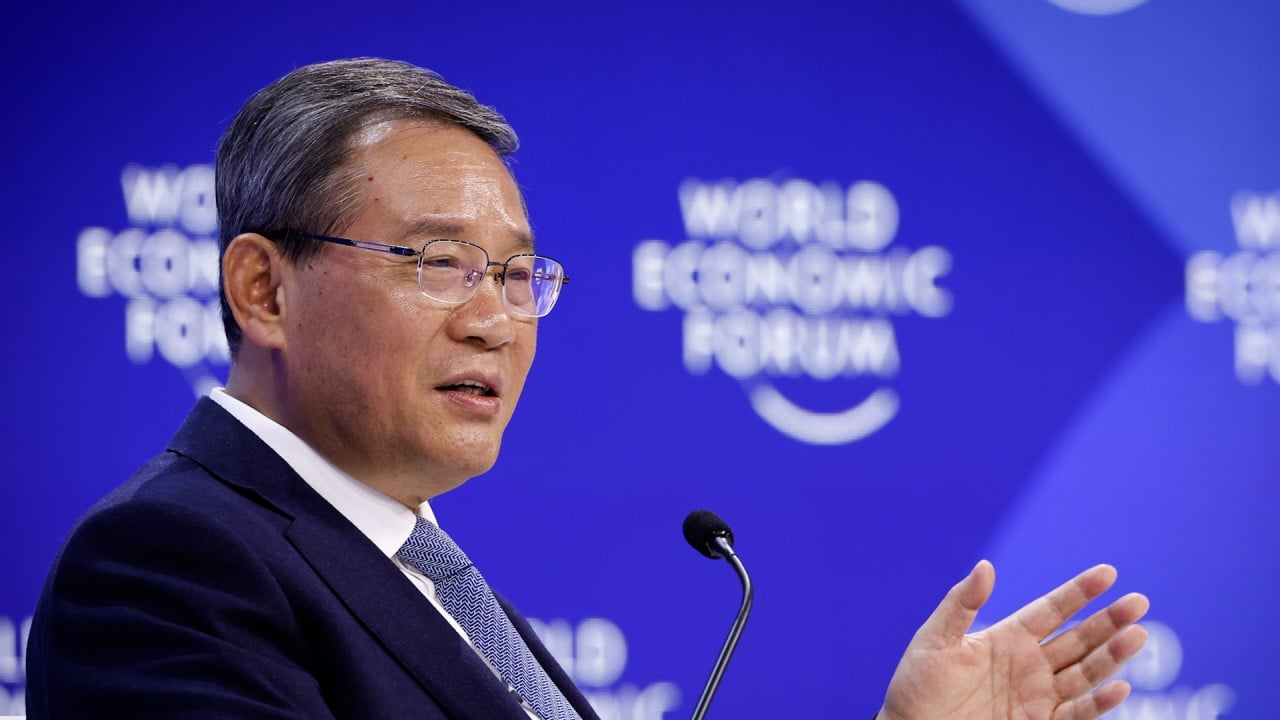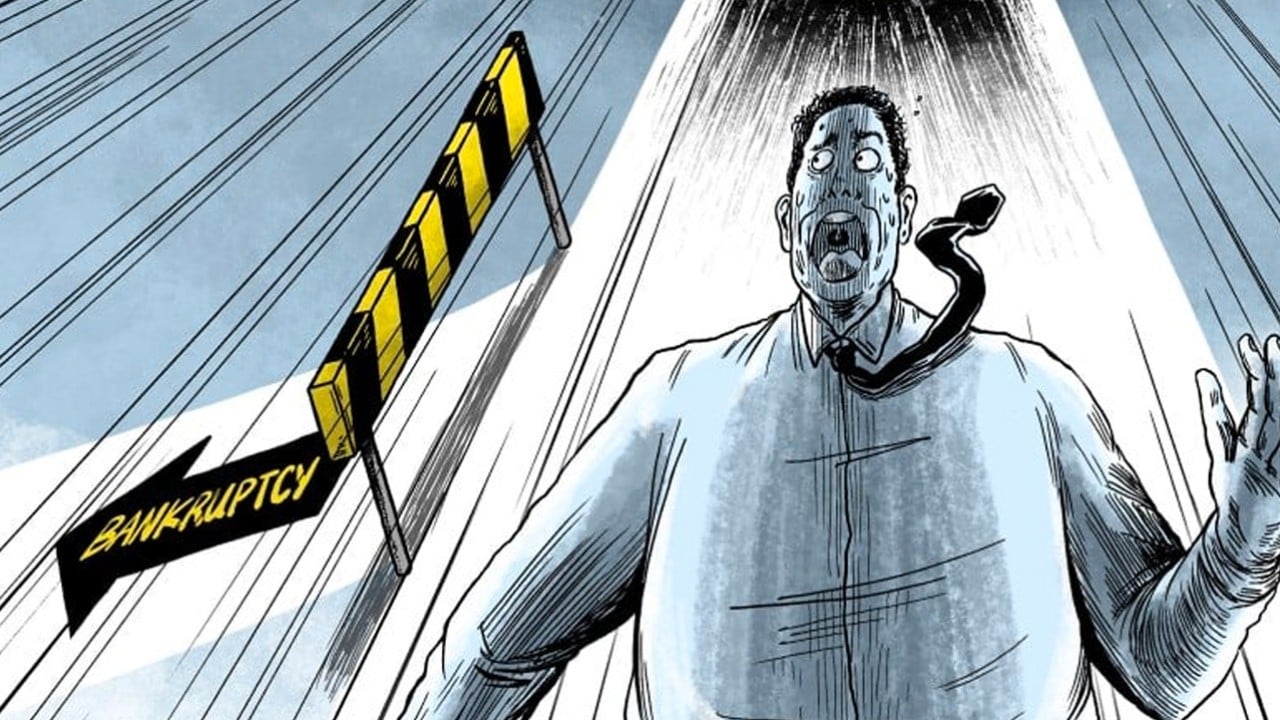The move immediately raised fears of the sorts of industrial clampdowns the market has seen in other sectors, triggering a global sell-off in China’s tech stocks and wiping out billions of dollars of value.
The regulator then sacked Feng Shixin, a long-serving official and publication bureau chief at the NPPA, sources told the South China Morning Post.
Feng was expected to stay on in a different position, but that post has not yet been confirmed, another government source told the Post.
The NPPA did not respond to the Post’s request for comment, nor has it announced the personnel change.
As a property crisis drags on and geopolitical tensions flare with the United States and other Western countries, private and foreign investment have contracted, falling to their lowest levels in more than a decade. Private investment shrank 0.4 per cent year on year, while foreign investment dropped by 8 per cent from 2022.
Adding to the pessimism is Beijing’s unclear stand on domestic policies. After years of prioritising security over development, and severe crackdowns on the property, financial, private tutoring and internet technology sectors to rein in “blind expansion” of private capital, Beijing signalled that it would fine-tune policies last year to aid the country’s faltering post-pandemic economic recovery. Various government documents were issued calling for more support for the private sector.
But according to observers, the government’s vague and mixed messages have generated widespread uncertainty about Beijing’s priorities, making it even harder to restore near-term business confidence.
Still, officials and insiders familiar with Beijing’s economic policymaking have dismissed the confusion and shrinking confidence, pointing to China’s multiple policy goals, a lack of communication between departments, and an intense geopolitical environment as reasons for the hazy perceptions. The message of support for growth, they say, has been clear all along.
“The mixed messages revolve around where the government wants to be on the continuum between economic development and growth on the one hand, and security and stability on the other,” said George Magnus, a research associate at Oxford University’s China Centre.
“The government is supposed to keep a balance between the two, but in his rhetoric and actions, [Chinese President] Xi [Jinping] consistently favours the latter.
“[Premier] Li Qiang and some other officials, including the NDRC [National Development and Reform Commission] on the other hand, seem to have a different slant but as everyone has to line up behind Xi, we sometimes get the impression the government itself is not aligned.”
Premier plays up China’s economic outlook, hits out at West over ‘de-risking’
Premier plays up China’s economic outlook, hits out at West over ‘de-risking’
Meanwhile, as the agenda-setting central economic work conference fuelled hopes that Beijing would focus more of its attention on the economy, it also puzzled observers with empty and bewildering phrases such as “establishing the new before abolishing the old”, “seeking progress while maintaining stability”, and “pursuing stability through growth”, according to Magnus.
“They comprise rhetorical support for the economy – establishing the new, progress, growth – but without a coherent agenda, and a reluctance to change much – not abolishing the old, stability,” he said.
“The conference readout and other public rhetoric, moreover, has emphasised the need to tell good stories about the economy and economic development. This really is politics in command, with little sign that the government has grasped the need for extensive reform of the development model,” Magnus said.
“A focus on economic development would entail more ambitious measures to boost demand and reforms, but the government’s security and stability bias is the antithesis, and certainly seems to be where Xi’s intent and belief lie.”
With Lunar New Year boon a stopgap, China’s economy has other priorities in 2024
With Lunar New Year boon a stopgap, China’s economy has other priorities in 2024
To shore up market confidence, China’s central bank last week announced a 50 basis points cut in the reserve requirement ratio from February 5 for all banks to free up 1 trillion yuan (US$139.45 billion) to the market, after it skipped a widely expected policy rate cut two weeks ago.
Policymakers have also urged banks to provide commercial property loans to eligible developers to allow them to pay off debts to ease a liquidity crunch facing troubled real estate firms.
The measures were welcomed by the market. However, they cannot fundamentally change the economic and policy outlook, which is the ultimate driver of the equity market and not forceful enough to restore business confidence, according to analysts.
Andrew Batson, an analyst with Gavekal Dragonomics, said the crossed wires resulted from the downgraded importance of China’s economic growth in recent years.
“Xi Jinping has given extremely clear and consistent instructions over many years that economic growth needs to be downgraded in importance relative to other political priorities. At the moment, growth is getting more attention for cyclical reasons, but the basic orientation has not changed,” Batson wrote in a research note this month.
“The agencies charged with delivering on political, social and security priorities have been given more power to achieve those objectives, and will be reluctant to yield it back to the economic bean counters.”
Chen Daoyin, an independent political analyst, said Beijing missed the window of opportunity to clarify its policy orientation and align all party organisations and government departments for the Third Plenum, which did not convene last year.
It was the first time since 1984 that the party had not convened the plenary session in the year following the five-yearly party congress, usually held in October or November.
“The absence of an announcement likely suggests disunity within the party. Thus the work focus down the road will not be clear to all stakeholders,” Chen said.
“Under such circumstances, government departments will maximise their own interests, shirk their responsibilities or behave irresponsibly, which is expected to further dampen business confidence.”
Three sources from the central government and SOEs pointed to “moving forward amid twists and turns”, a quote by Xi from July’s Politburo meeting, as the main theme for economic recovery in 2024.
A government source who spoke on condition of anonymity said the incident over tech gaming rules was only caused by some department which has “limited understanding on macroeconomics or the potential impact of its proposed regulations”.
An SOE executive said it was partially due to Beijing’s emphasis on driving the “real economy”, which the gaming industry was not considered a part of.
China’s three-legged race to fend off the 4 D’s of an economic apocalypse
China’s three-legged race to fend off the 4 D’s of an economic apocalypse
The government contact also noted that a personnel assessment system that did not directly correlate with economic performance could be a factor in the seemingly conflicted signals.
“As civil servants, we are dealing with a different assessment system for our work. Despite the fact that we are working on managing the country’s economy, its performance does not directly translate into our career advancement or promotion,” the source said.
The sources generally played down the impact of mixed signals on business confidence. Instead, they named the Taiwan issue and China’s longer-term economic problems – an ageing population and a tech sector held back by US sanctions – as the main concerns for business investors, justifying Beijing’s emphasis on security and science and technology development.
Closer to the front lines of China’s economic troubles, Fred Tang, an entrepreneur in the manufacturing sector in the eastern province of Jiangsu, said he has not been impressed by government rhetoric about boosting confidence and supporting the economy.
“I’ve received piles of government documents promising support in recent months. I lost interest quickly when I read the details,” Tang said.
For instance, he said, the proposed government funding for new investment projects came with many strings attached, meaning applicants were required to navigate assorted procedures and obtain various licences to qualify.
I’ve received piles of government documents promising support in recent months. I lost interest quickly when I read the details
“The whole process will be time-consuming and troublesome. In the end, you have to deal with all kinds of government officials. They are the industry examiners, inspectors and watchdogs. They are watching you, instead of serving you,” he said.
While Premier Li called on his audience in Davos earlier this month to “zoom out and look from afar” to appreciate China’s economy as they would appreciate the beauty of the Alps, Tang felt more concerned about the short term.
“Industrial clampdowns are hanging over our heads like the sword of Damocles. As long as the government wants to be the big boss of everything, few would feel assured enough to invest,” he said.
Additional reporting by Jun Mai


